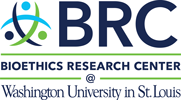Title: Eager Researcher Signs Away Intellectual Rights Despite University Refusal
Author: Adapted from a case written by Anji Wall
Description: A long-standing rapport with an independent company has status and financial perk for a university researcher. Before the company signs a contract with the researcher’s university, the company asks the researcher to waive his intellectual property rights. The researcher concedes against the wishes of the university.
Keyword(s): Collaborative Research,Conflict of Interest, Failed Negotiation, Intellectual Property, Material Transfer Agreement, Research Misconduct
Based On: (Shamoo & Resnik, 2003, p. 136)
Case: A university faculty member received a small grant from National Institutes of Health (NIH) on research which requires the use of reagents supplied by an independent company. Over the years, the faculty member has developed a good relationship with this company. He has taught continuing education courses there, has reciprocated by inviting company specialists to lead discussions in classes at the medical school where he teaches, and has supplemented his income consulting for them. As a condition of his consulting arrangement, he also makes no claim to intellectual property rights that might arise during his work consulting for the company. A material transfer agreement (MTA) was sought with the university so that the faculty member could start using the reagents provided by the company. However, the university declined, citing concerns over the breadth of property rights conferred to the company in the agreement for the use of their reagents. Eager to begin his research, the faculty member was asked to sign the agreement during one of his visits to the company, which he did.
- What are they key ethical issues in this case?
- The university discovers that the investigator signed the agreement. How should the university respond? What should the faculty member do?
- Who rightly owns the patent to the results of the research conducted by the investigator?
- Woulda patent application from the company be valid in this case?
- What should all of the parties have done differently upfront to avoid this situation?
Source: Shamoo, A., & Resnik, D. (2003). Responsible Conduct of Research. New York: Oxford University Press.

